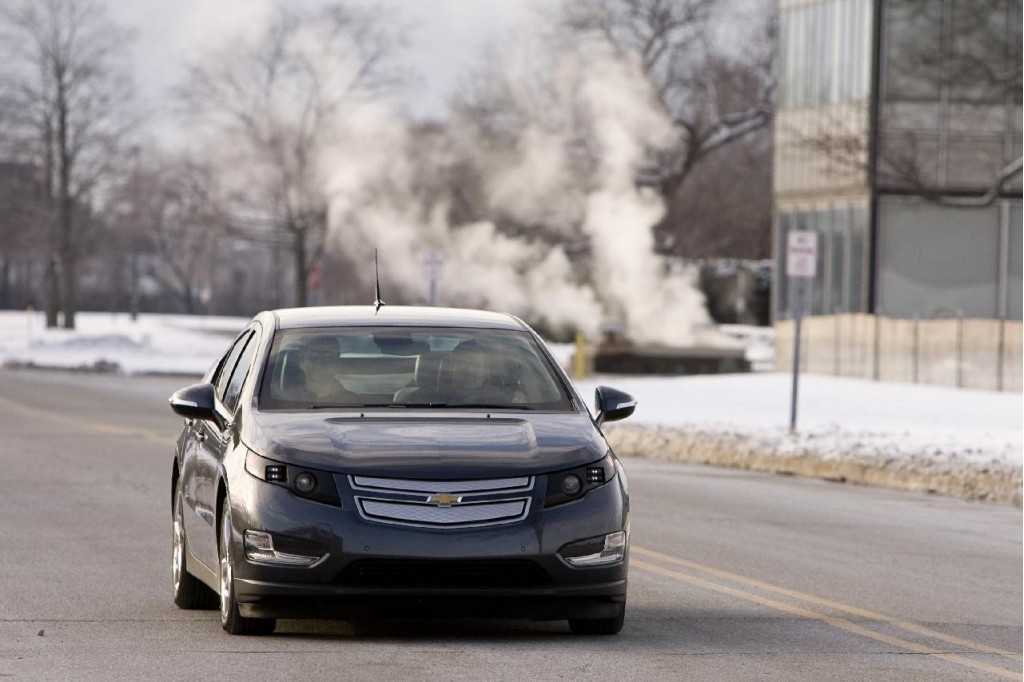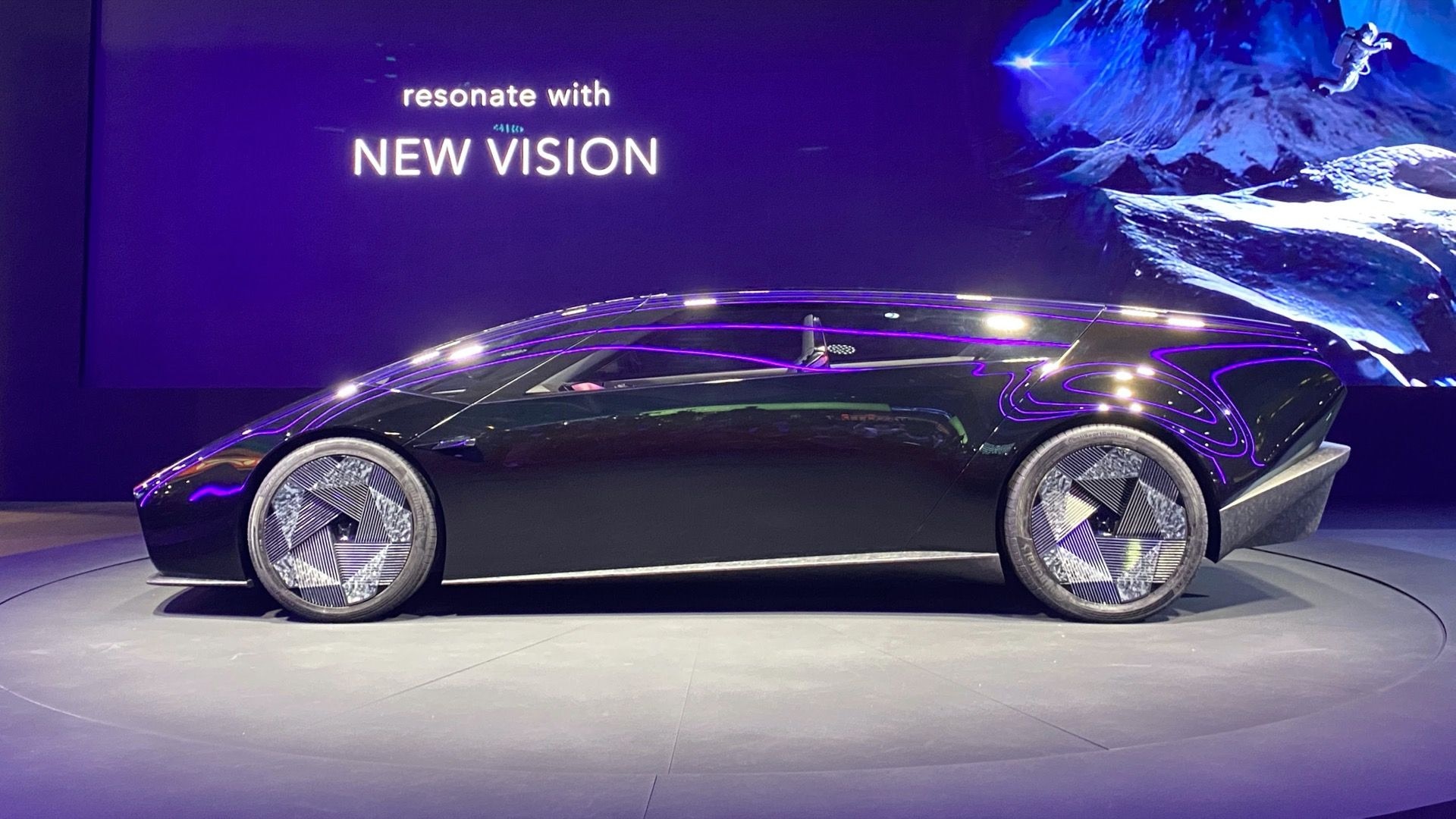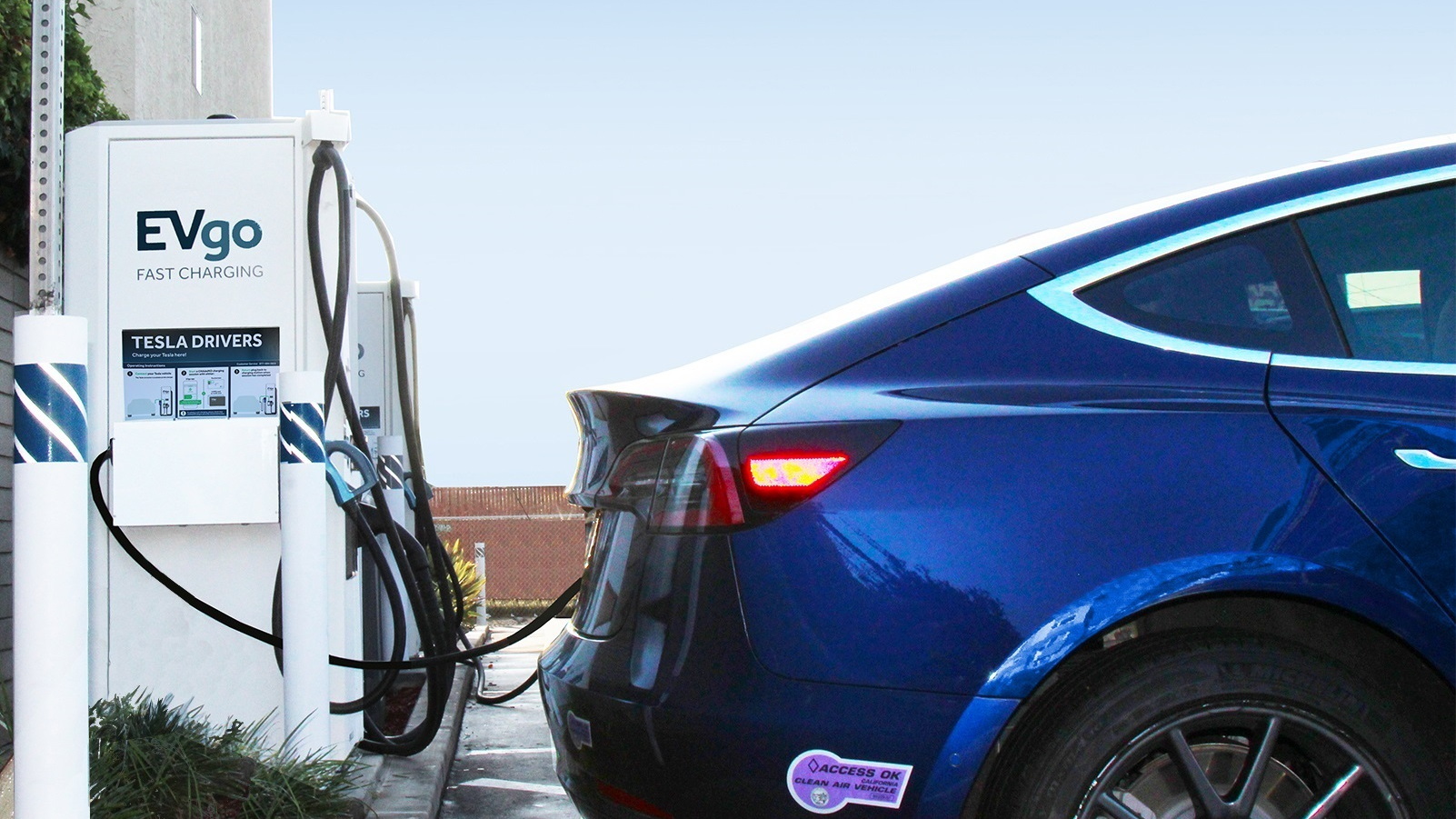UPDATE: Well, it sounded too good to be true, and perhaps it was. We asked GM spokesman Dave Darovitz for comments on CEO Whitacre's "low-thirties" price for the 2011 Chevrolet Volt.
Darovitz tells GreenCarReports.com that while Chevy "has not officially announced final Volt pricing, a price in the low 30's after a $7,500 tax credit is in the range of possibilities." [our italics]
In other words, Whitacre's"low thirties" quote includes the $7,500 Federal tax credit for individual buyers. We're back to the $40,000 sticker price for the Volt that's been rumored for a year or more, following a casual comment by GM's Bob Lutz. And there you are.
+++++++
With the 2011 Chevrolet Volt just 10 months from showrooms, and journalists able to write first-drive reports on all-but-final cars, the biggest remaining question is the price.
Now comes a bombshell: The Volt is "going to sell in the low thirties," says General Motors CEO Ed Whitacre, and the company will "get a margin" on that price, meaning it expects to make a profit on the extended-range electric vehicle.

2011 Chevrolet Volt pre-production prototype, January 2010

2011 Chevrolet Volt pre-production prototype, January 2010

2011 Chevrolet Volt pre-production prototype, January 2010
If that is true--and not just PR posturing--General Motors will have pulled off a remarkable coup. By contrast, Toyota is widely assumed to have spent billions of dollars subsidizing several years' worth of sales of its early hybrid-electric vehicles before turning a profit.
The Volt's 16-kilowatt-hour battery pack alone is thought to cost as much as $8,000, and the Volt carries essentially the same 1.4-liter gasoline engine as the 2011 Chevrolet Cruze compact sedan, plus an electric motor, a generator, and power electronics. In other words, the Voltec powertrain has many pricey pieces. (The Volt does not, however, require a transmission.)
Fierce debates have raged over the profitability of electric vehicles, with results as diverse as the estimates of when electric vehicles will actually show a payback for the average consumer. All of those estimates start with assumptions about the retail price of electric cars.
If consumers can get a 2011 Volt for, say, $32,500 (the midpoint of the "low thirties"), followed by a $7,500 Federal tax credit on top, a Volt ends up "costing" only $25,000. That's likely close to the sticker price of a high-end 2011 Chevrolet Cruze gasoline car.
And if GM can do that, Volt demand will clearly expand far beyond the early adopters and electric-car enthusiasts who are expected to snap up initial production of 10,000 cars during 2011 and 60,000 the following year.
If the Volt stickers well below $35K--and GM really makes a profit, or just breaks even, at that price--then the future of electric cars looks brighter than it did even a week ago. Stay tuned to GreenCarReports.com for updates on the price of the 2011 Chevrolet Volt.













